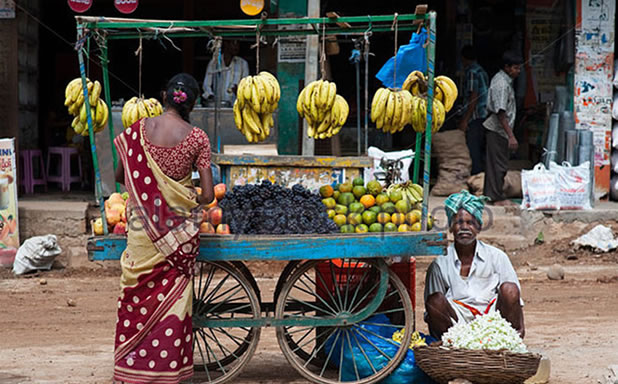Apr. 2005: “The one who eats has tasted the hardship of labor.” – Tembo (Democratic Republic of the Congo) Proverb
Ne mange que celui qui a gouté à la fatigue du travail. (French)
Anayekula ameonja ugumu wa kazi. (Swahili)
The one who eats has tasted the hardship of labor. (English)

Tembo (Democratic Republic of the Congo) Proverb
Background, Explanation, Meaning and Everyday Use
In all societies and for people of all ages, the honest way of gaining life, caring for one’s family and assuring one’s future is labor. Labor of the farmer waking up early in the cold of the morning to till the soil; labor of the young school boy revising his lessons; labor of the watchperson spending sleepless nights; labor of the pilot flying miles in the air; labor of the courageous lady along the street selling chips and water. Labor made of doubt, sweat and hope. We find many people who complain about hunger and deprivation and, yet, they do not want to work. This Tembo Proverb in the Democratic Republic of the Congo (DRC) warns and reminds the lazy person that enjoyment is a result of hard work and sacrifice. A human being is called to work in order not to become a beggar, a burden to others, and a source of problems. Nobody is allowed to harvest and enjoy what he/she never worked for. One should be ashamed of enjoying the fruits of other’s sweat.
The Batembo constitute a small ethnic group in the eastern part of DRC. This part of the country has been under a humanitarian crisis following a ravage of almost nine years of war from 1996. A lot of people died during the war. Many fled their homes to the neighboring towns of Bukavu and Goma. Old and wise people, the custodians of traditions and customs. are disappearing together with their rich experiences and wisdom. With the death of these wise people and the precarious situation of people being scattered, the culture is slowly disappearing.
 Biblical Parallels
Biblical Parallels
Scripture recognizes the importance of human work as participation in God’s creative will, a necessity for human survival, and a humble way of responding to God’s call to holiness and perfection. It discourages laziness as a source of vice and corruption. St. Paul encourages the followers of Christ in Thessalonica to live a life worthy of their Christian call and give labor its due:
“You know how you should take us as your model: we were not undisciplined when we were with you, nor did we ever accept food from anyone without paying for it; no, we worked with unsparing energy, night and day, so as not to be a burden on any of you. This was not because we had no right to be, but in order to make ourselves a model for you to imitate. We urged you when we were with you not to let anyone eat if he refused to work. Now we hear that there are some of you who are living lives without any discipline, doing no work themselves but interfering with other people. In the Lord Jesus Christ, we urge and call on people of this kind to go on quietly working and earning the food that they eat” (2 Thessalonians 3:7-12 — New Jerusalem Bible Translation)
Contemporary Use and Religious Application
When hearing and reading about examples of corruption, financial mismanagement, and extravagant lifestyle that various leaders and governors are displaying in many of our African nations, one wonders what example of honest life and hard work the elders are giving to young generations. Now more than ever before, Christians in Africa need to stand against practices of secular life that devaluate human labor: traditions of dishonesty, laziness and immorality, and the new culture of begging that is being disseminated in our societies. Young generations need encouragement that their daily efforts can be justly rewarded, and not wasted into the stomachs of a handful of unscrupulous people.
Jean-Charles Kubanabantu, S.J.
Democratic Republic of the Congo
Email: kubanabantujc@yahoo.fr
